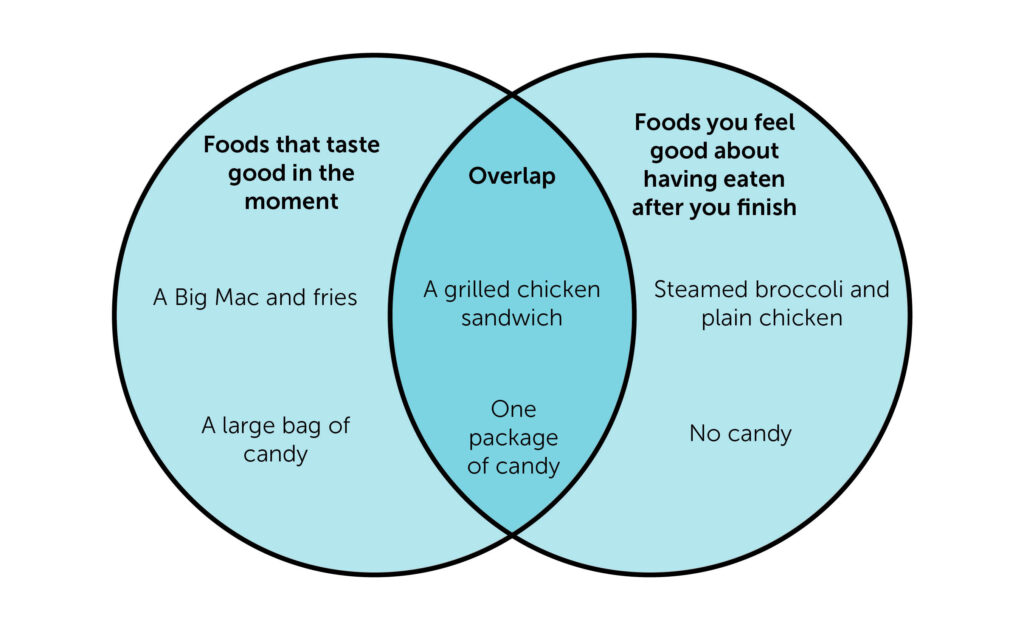One of the concepts I talk about with all of my clients is using a Venn Diagram (i.e. two overlapping circles) whenever they are making food decisions. The first circle contains foods that taste good to them and that they feel like eating in the moment. The second circle contains foods that they will feel good about having eaten after they finish. For everyone, there are foods that exist in each circle independently. For me personally, a Big Mac and fries taste good in the moment, but do I feel good about having eaten them after I’ve finished? Not particularly. In the other circle, I might include a meal like steamed broccoli and plain chicken with no seasonings. Do I feel good about having consumed something so healthy? Sure. But does it taste all that good to me? Not really.
The trick is to figure out what foods or meals exist in the overlap. For virtually everyone, there is a lot of overlap between foods that taste good to them, and foods they feel good about having eaten. Making decisions to eat foods that exist in the overlap is particularly important when people are at restaurants ordering off a menu, but can be helpful for any eating or food decision.
The mistake many people initially make is that they only (or largely) pay attention to the first circle: what they most feel like eating at any given moment. They often don’t recognize how they will feel afterwards. One of my clients was in the habit of buying a large bag of candy every time she went to the grocery store and eating the whole thing in one sitting. Because that candy tasted good to her, she didn’t take the time to pay attention to how she felt once she finished eating it. Once we started looking at the whole experience of eating a big bag of candy, she was able to see that doing so made her feel overly full and very regretful. We figured out that eating a whole bag of candy existed only in the first circle, while eating no candy existed solely in the second circle. The overlap was buying one small package of candy and eating it in a planned way. That way she was able to enjoy the candy and enjoy the experience of having eaten the candy.

What’s interesting about this Venn Diagram strategy is that what exists in the overlap can shift over time. My client, Lauren, often goes to a popular fast casual restaurant for lunch and orders a salad, which she really enjoys. Last week in session, she told me that she went to the same restaurant, but this time ordered a grilled chicken sandwich because the salad just wasn’t appealing on that day. “I probably should have ordered the salad, though,” she told me.
“Actually, I don’t think you should have,” I said to her. Because she didn’t feel like eating a salad for lunch that day, doing so would have landed her in the second circle, not in the overlap, which is always the goal. On that day, a grilled chicken sandwich was ticking both boxes.
So, again, whenever you’re making an eating decision, consider this:
What will taste good to you in that moment and, equally important, what will you feel good about having eaten once you finish it?
This strategy can be an incredibly helpful tool to guide your eating decisions!